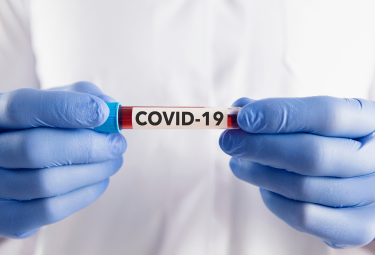
Sep 16, 2024 | Covid-19, News
COVID-19 is a respiratory disease that continues to affect people and communities worldwide. Older adults are more likely than younger people to get very sick from the disease. The resources below are from the National Institute on Aging (NIA), part of the National...

Oct 4, 2022 | Covid-19, News
Viral tests look for a current infection with SARS-CoV-2, the virus that causes COVID-19, by testing specimens from your nose or mouth. There are two main types of viral tests: nucleic acid amplification tests (NAATs) and antigen tests. In certain circumstances,...

Sep 26, 2022 | Covid-19, News
Everyone 6 Months and Older Should Get a COVID-19 Vaccine COVID-19 vaccination has many benefits and is an important tool to help protect you from severe illness, hospitalization, and death. Even if you or your child have had COVID-19, you should still get...

Sep 16, 2022 | Covid-19, News
What You Need To Know In addition to following the recommended COVID-19 vaccination schedule, tixagevimab/cilgavimab (Evusheld), a combination of two monoclonal antibodies, should be administered to people who are moderately or severely immunocompromised every 6...

Sep 12, 2022 | Covid-19, News
Updated guidance reflects new recommendations for isolation and precautions for people with COVID-19.Removed Assessment for Duration of Isolation and Key Findings From Transmission Literature sections so page provides most current information. Key Points People who...

Sep 2, 2022 | Covid-19, News
Effective September 1st, 2022, CDC Director Rochelle P. Walensky, M.D., M.P.H., endorsed the CDC Advisory Committee on Immunization Practices’ (ACIP) recommendations for use of updated COVID-19 boosters from Pfizer-BioNTech for people ages 12 years and older and from...







